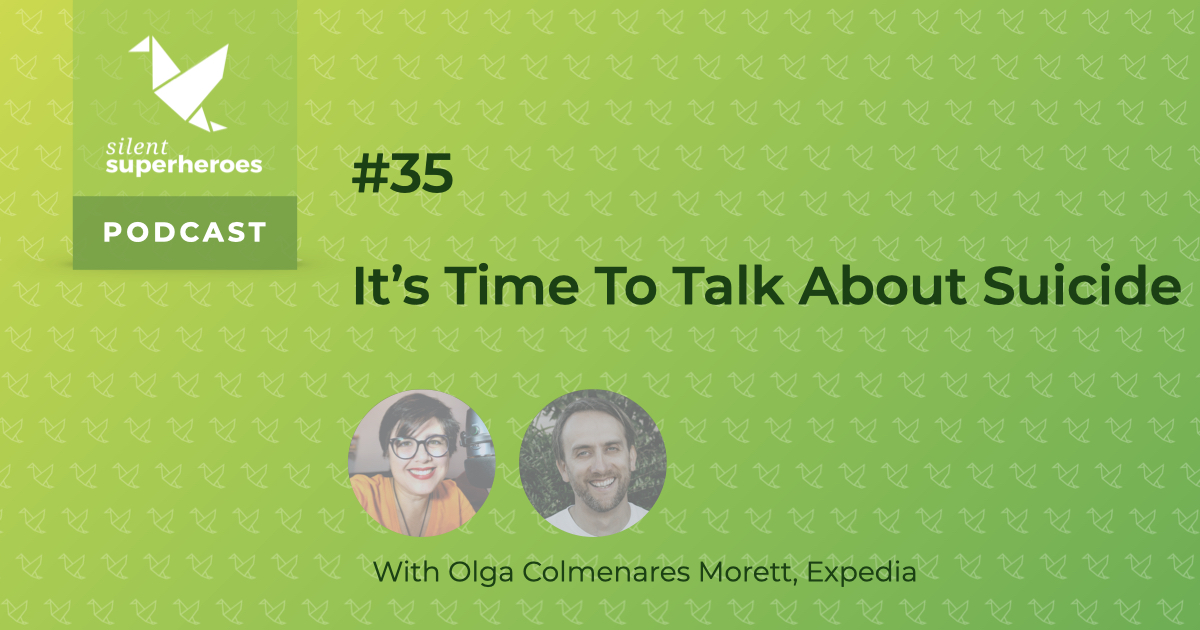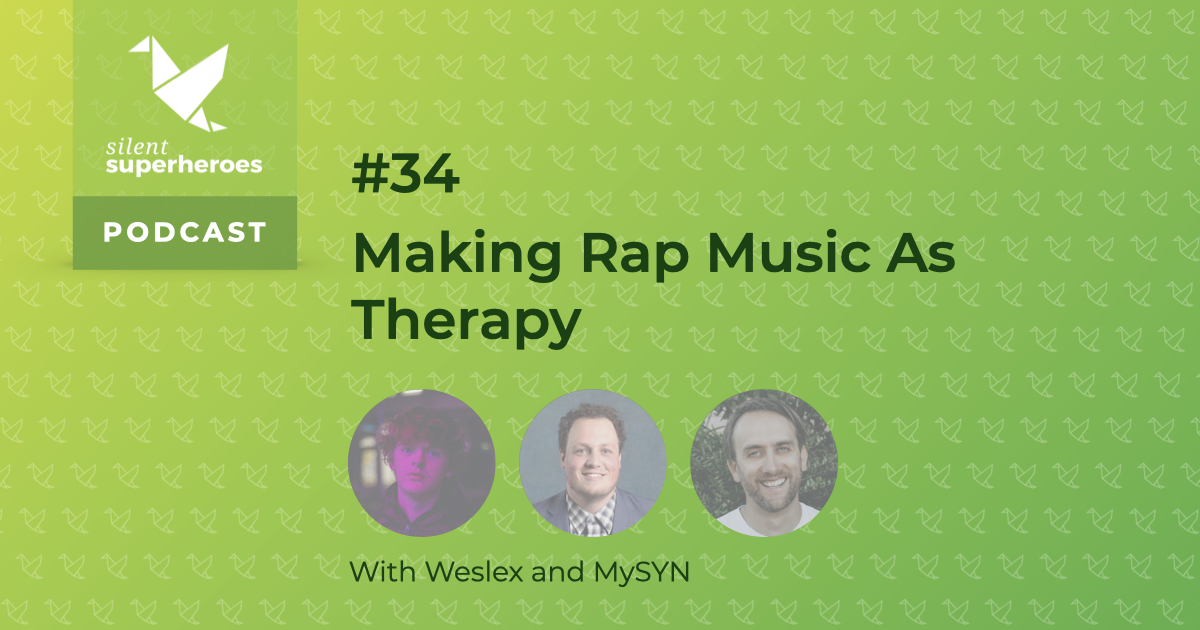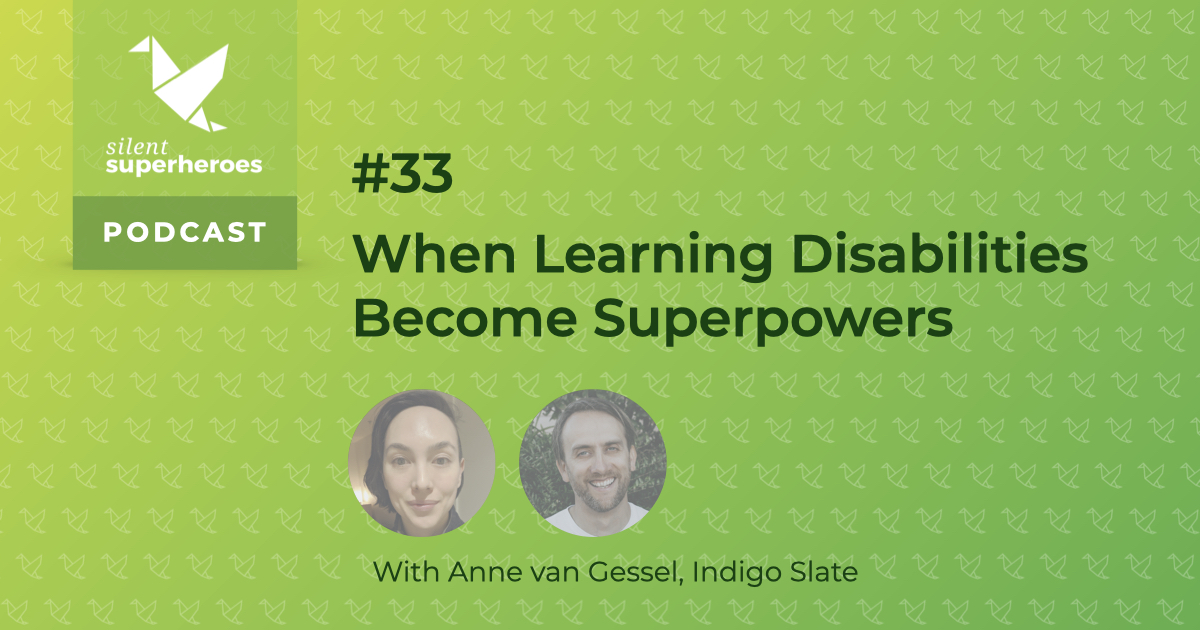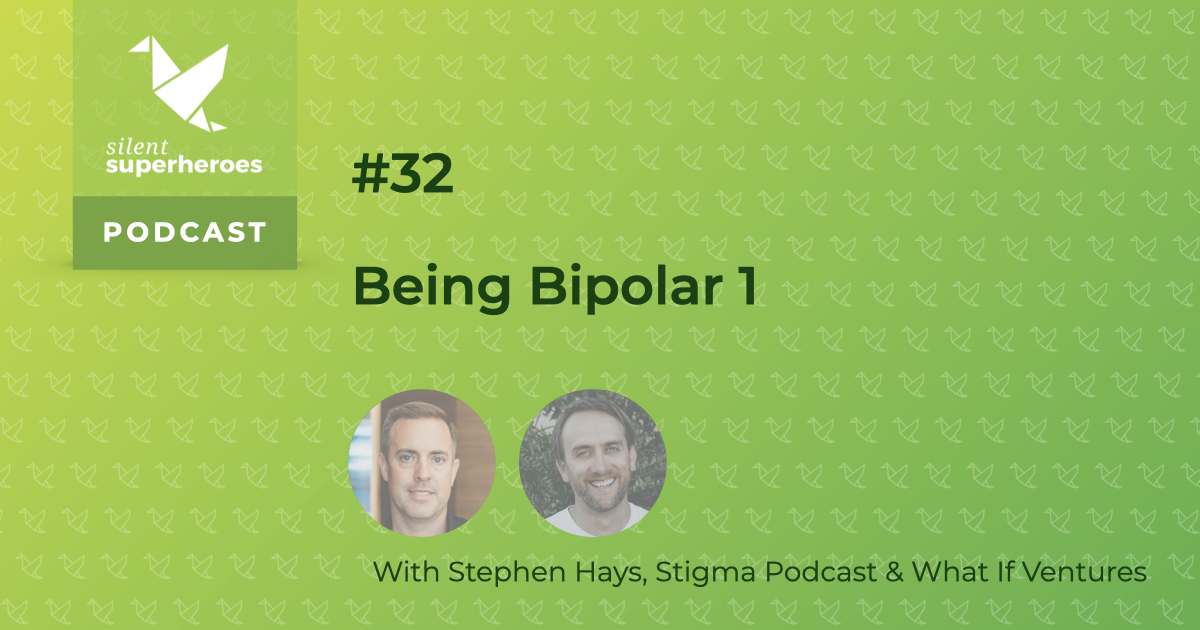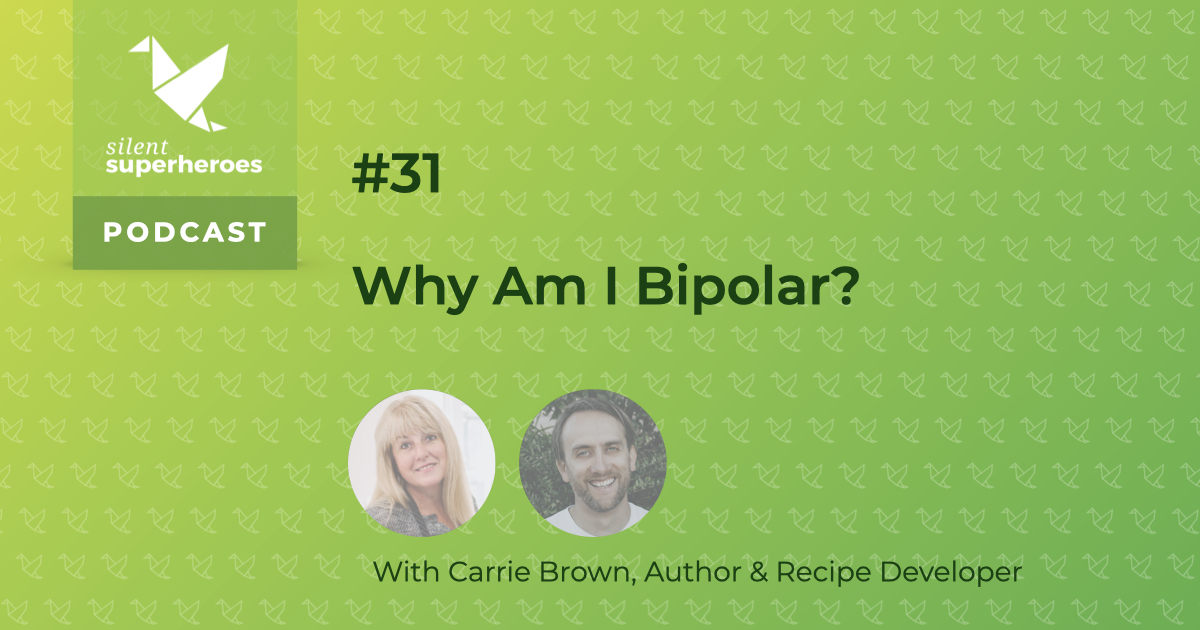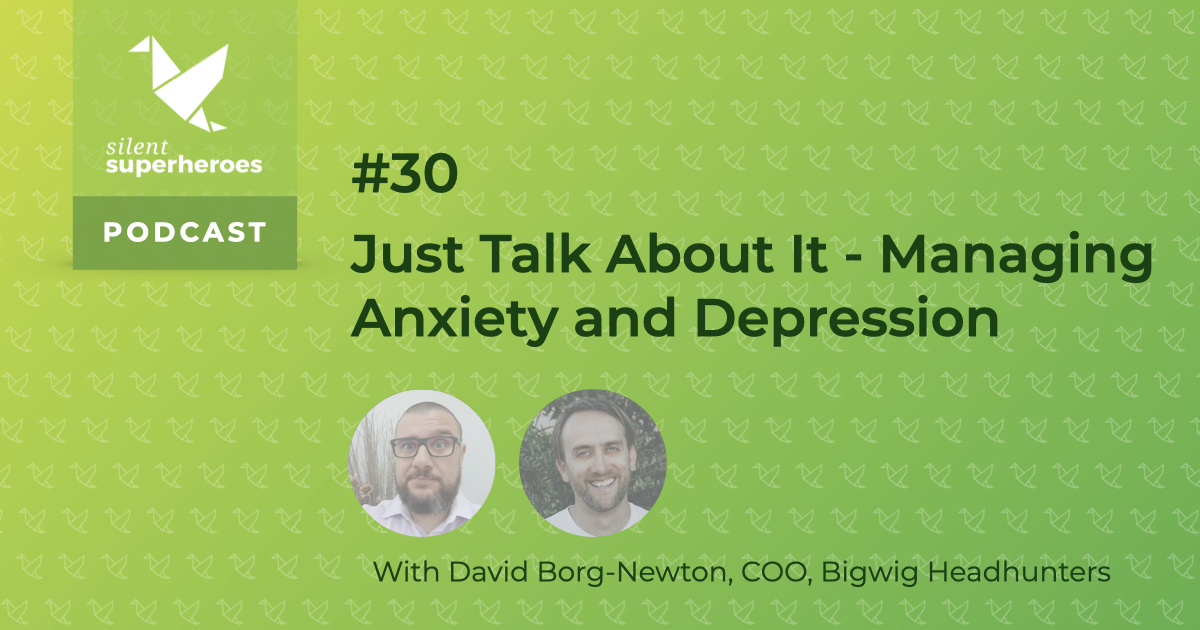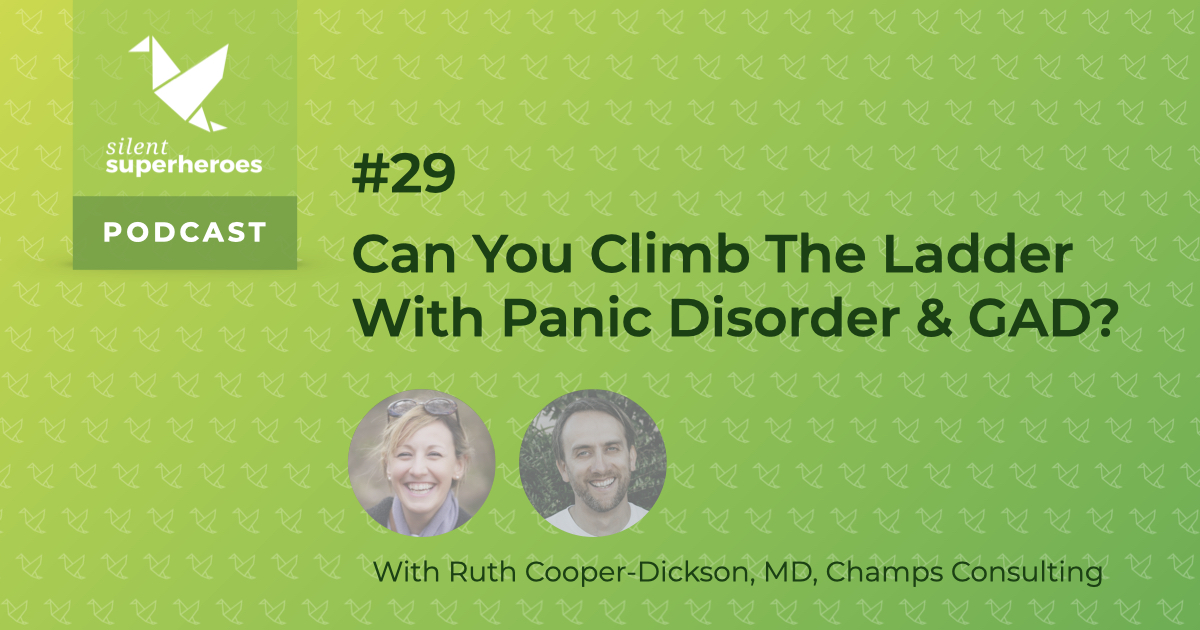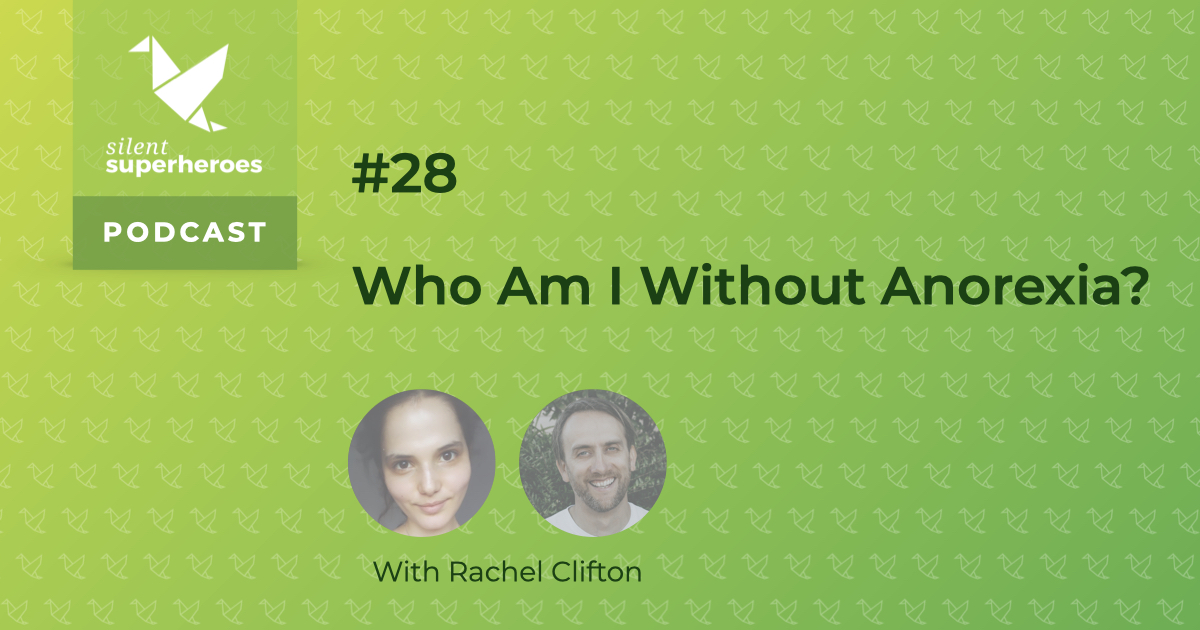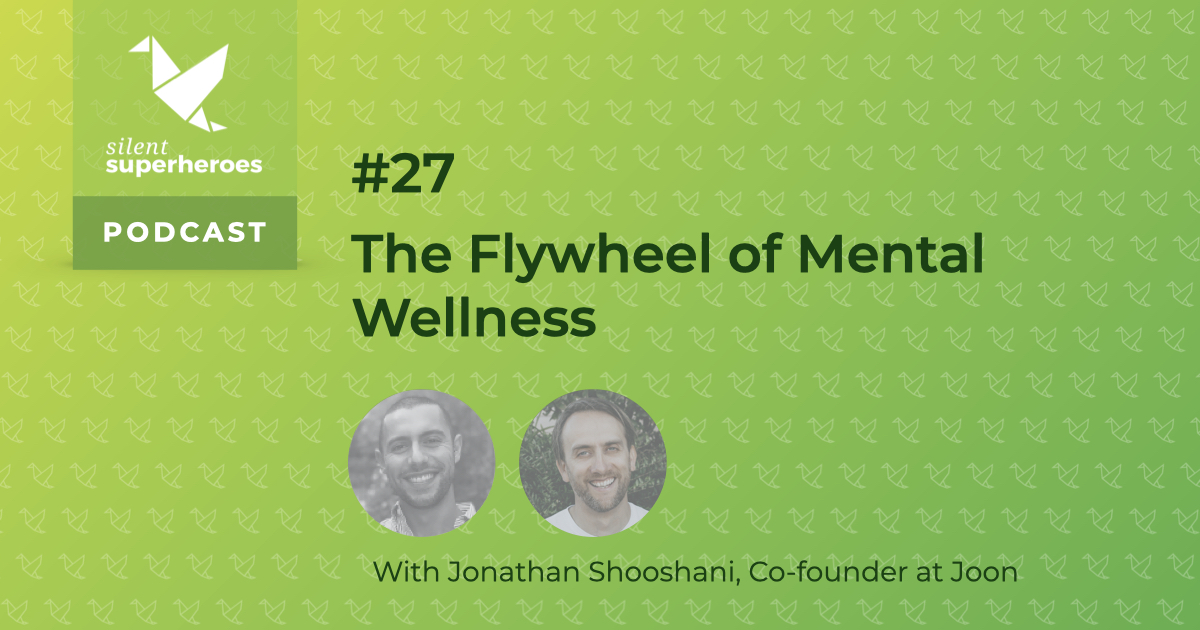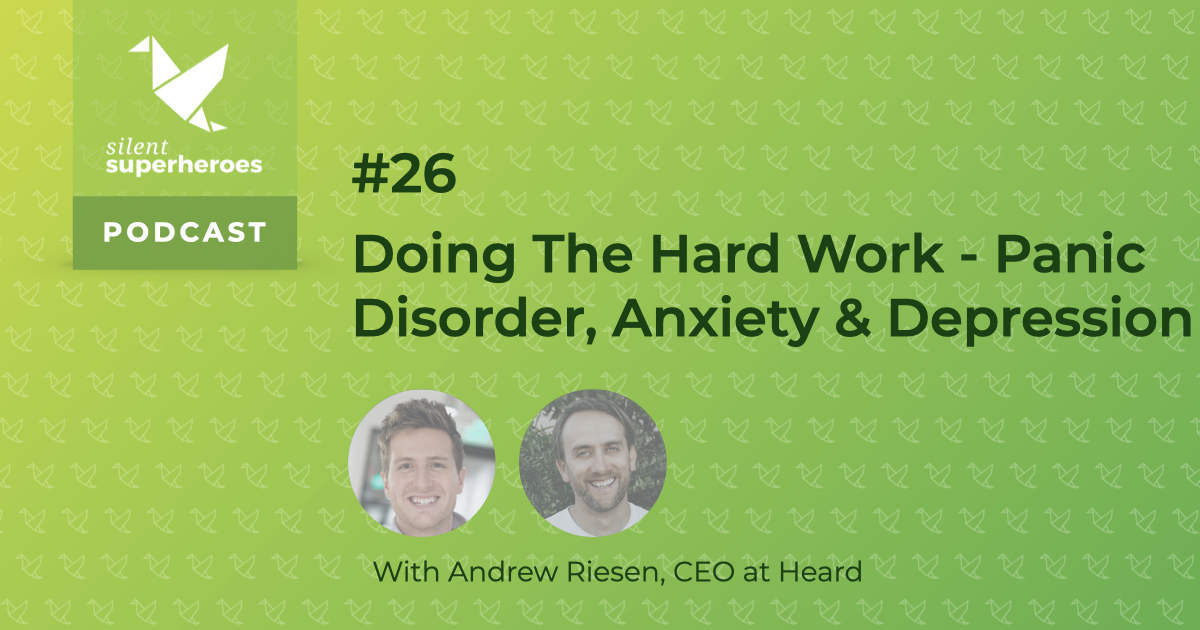Olga is a Technical Program Manager at Expedia. She is originally from Venezuela and now lives in Montreal. Olga is also an active YouTuber with her channel Cronopio. Growing up in a Latino community with an alcoholic father and a stoic mother, Olga learned that you don’t complain and you don’t talk about your feelings. Because of that, Olga was emotionally isolated. At 15 she decided to commit suicide by playing Russian roulette.
Podcast: Play in new window | Download (Duration: 43:41 — 23.0MB)
In this episode of Silent Superheroes, Olga shares the difference she sees between someone serious about suicide and someone using it as a cry for help. She speculates why mental health is a taboo subject in the Latino community. And finally she exhorts us all to open up and talk about our feelings, especially employers. For her, it’s time to talk about suicide.
Links
About Suicide
Suicide, taking your own life, is a tragic reaction to stressful life situations — and all the more tragic because suicide can be prevented. Whether you’re considering suicide or know someone who feels suicidal, learn suicide warning signs and how to reach out for immediate help and professional treatment. You may save a life — your own or someone else’s.
It may seem like there’s no way to solve your problems and that suicide is the only way to end the pain. But you can take steps to stay safe — and start enjoying your life again.
Due to these factors, if you’re feeling overwhelmed by thoughts of not wanting to live or you’re having urges to attempt suicide, get help now. Please, it’s time to talk about suicide.
- Call 911 or your local emergency number immediately.
- Call a suicide hotline. In the U.S., call the National Suicide Prevention Lifeline at 1-800-273-8255 any time of day — press “1” to reach the Veterans Crisis Line or use Lifeline Chat.
Getting Support
Remember, the people you hear on Silent Superheroes are sharing their own views about mental health and mental illness. They are not giving advice. For that reason, please consult with your care provider before making a change to your treatment plan.
It’s important to take your mental health seriously. Consequently, if you need to speak to someone you can call 1-800-273-8255, or text crisistextline.org on 741741. Both provide 24×7 confidential counseling to people in the United States. Worldwide visit http://iasp.info/resources/Crisis_Centres/
Because you listened to the podcast, you can help others find it by leaving us a review on iTunes. Or if you don’t use iTunes, leave a review on your favorite podcasting service.


